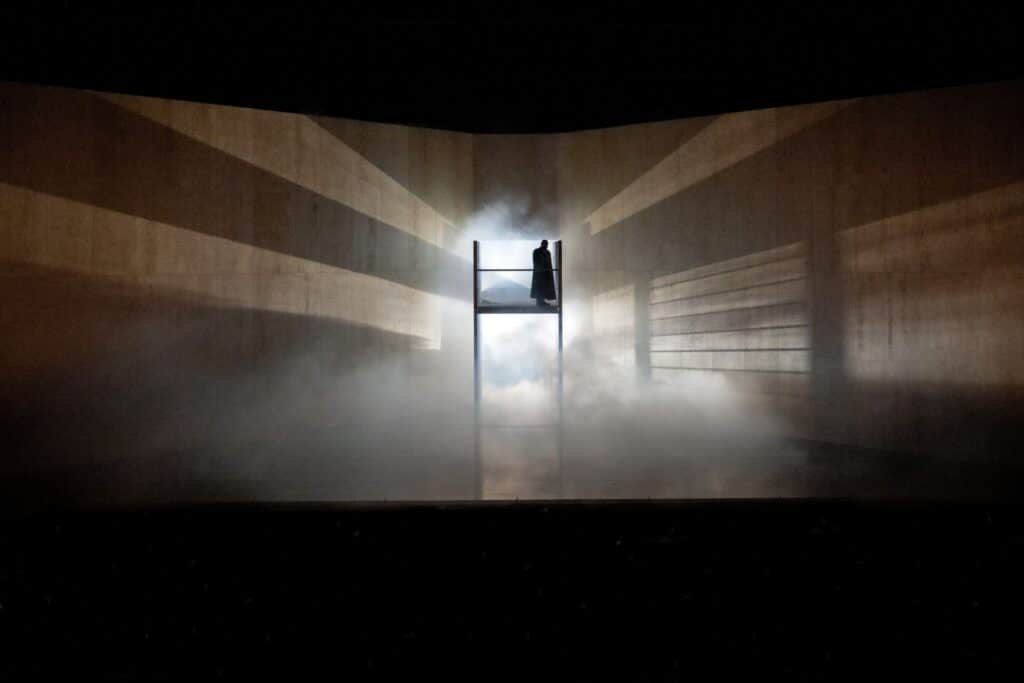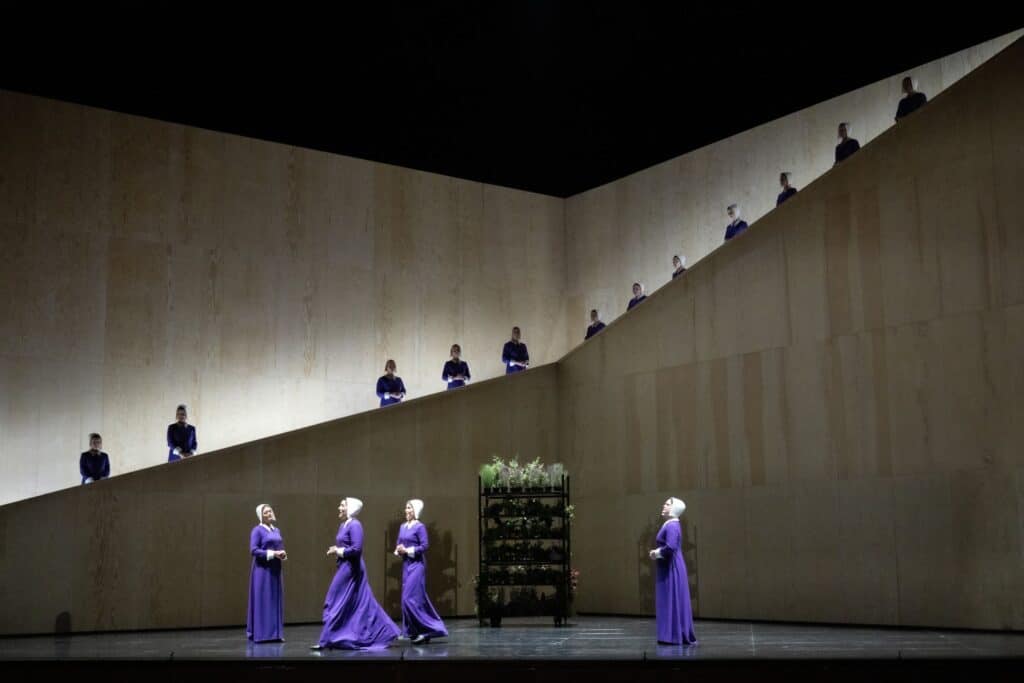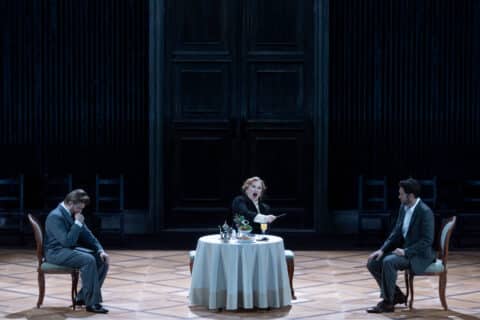IL TRITTICO • AMSTERDAM OPERA
★★★★★★

Photo: Monika Rittershaus
REVIEW IL TRITTICO: BARRIE KOSKY HATTRICK IN AMSTERDAM
You killed the bitch? I said in amazement to a big grinning, highly sympathetic Barrie Kosky at the world premiere of the star director’s version of the Puccini classic Il Trittico.
A highly anticipated new production at the Opera Company of the Year 2024 Nationale Opera & Ballet in Amsterdam, in which the skipper’s wife, for once, does not escape alive from her poor affair with one of the river barge workers.
Yes, I killed her, it sounded from a smiling, relaxed Kosky, who, unlike several other directors, has not chosen to let love and forgiveness prevail in Il Tabbaro, the first of Trittico’s three one-act plays.
As Kosky says: The operas are very different, both musically and dramatically. The only thing they have in common is death. I am attracted to the different expressions of death in this unusual work by Puccini, and have tried to unify the ‘trypticon’ in a homogeneous aesthetic and a stage design that does not interfere too much with the plot.
Il Tabbaro ends with a furious jealousy killing. Sister Angelica commits suicide when she loses her grip after learning that her beloved son is dead. And in Gianni Schicchi, it’s the death of a wealthy family head that sets the plot in motion.
Kosky goes straight to the heart and cuts to the bone in his production, which struggles with Amsterdam’s extremely wide stage, but still wins six stars for idea, excellent soloists, sublime orchestral playing and a set design that, in all its simplicity, succeeds in giving space to the emotions and focusing on character development.

Photo: Monika Rittershaus
Il Tabbaro is set in a somewhat peculiar scenography of pine log construction that looks like a cross between an Ikea terrace and a garage. Effective, yes, but also a far cry from the spectacular opulence Kosky recently presented us with in Saul.
Hard, flat side lighting creates effective, long silhouette shadow effects with a retro look a la Hitchcock and classic film noir, which this story has a lot in common with in its slow build-up of suspense before Skipper stabs his wife to death. The hapless couple, trapped in a loveless, hopeless marriage, are exquisitely dramatized in their predictable path to doom.
The orchestral playing by the Netherlands Philharmonic Orchestra conducted by Lorenzo Viotti is first-rate, and benefits from the hall’s excellent acoustics, giving Puccini’s dark, melodramatic score a deep, meaty resonance.
The singers, Daniel Luis de Vicente (Michele), Joshua Guerrero (Luigi) and Leah Hawkins (Giorgetta) are obviously top notch.

Photo: Monika Rittershaus
In Sister Angelica, the humiliations are also sharply cut. Russian soprano Elena Stikhina is one of the great names of our time, and brings the house down in the role of the unhappy, convent-exiled woman who commits suicide by poison in the hope of being reunited with her dead son.
The poignant farewell scene is powerful stuff, ending with her pouring all the ashes from her son’s urn over herself in a visual scoop that sticks in your mind.
The star soprano Stikhina, who has long occupied opera strongholds such as Vienna, Berlin, New York, Zurich, Paris and the Salzburg Festival, delivers with enormous vocal energy and bittersweet lyrical radiance. The applause is thunderous.

Photo: Monika Rittershaus
The trilogy is rounded off with Gianni Schicci, a hilarious, dark operatic comedy about greed, where Kosky is at home with a layer-cake comedy mix of delightful, recognizable oddities.
It’s wealthy Buoso Donati’s birthday and he celebrates by eating a giant layer cake, which he dies upside down in after blowing out the many candles. Panic spreads through the party as the rumours spread that he has donated his entire fortune to local monks.
It’s glorious when the bereaved search the body in the hope of finding and ‘adjusting’ the will – and discover that the noble deceased is actually queer and wears women’s clothes and a bra under his habit.
The tarnished but resourceful fixer Gianni Schicci is called in to tamper with the will in a slapstick scam that ends with him double-crossing the greedy family and bequeathing most of the fortune to himself.
The ensemble performs beautifully in a delightful, undulating, well-directed group choreography, costumed in comical bright colors – an intelligent contrast to the excellent music.
The famous O Mio Babbino Caro aria is delivered touchingly beautiful in the crazy context of pure kitsch. It doesn’t get any better than this.
Six stars from GOT TO SEE THIS to a Barrie Kosky hattrick worth traveling for.





